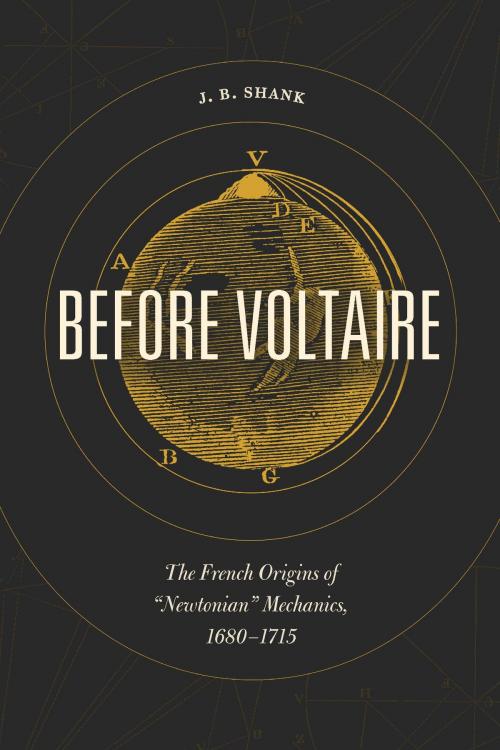Before Voltaire
The French Origins of “Newtonian” Mechanics, 1680-1715
Nonfiction, History, France, Science & Nature, Science, Other Sciences| Author: | J.B. Shank | ISBN: | 9780226509327 |
| Publisher: | University of Chicago Press | Publication: | June 8, 2018 |
| Imprint: | University of Chicago Press | Language: | English |
| Author: | J.B. Shank |
| ISBN: | 9780226509327 |
| Publisher: | University of Chicago Press |
| Publication: | June 8, 2018 |
| Imprint: | University of Chicago Press |
| Language: | English |
We have grown accustomed to the idea that scientific theories are embedded in their place and time. But in the case of the development of mathematical physics in eighteenth-century France, the relationship was extremely close. In Before Voltaire, J.B. Shank shows that although the publication of Isaac Newton’s Principia in 1687 exerted strong influence, the development of calculus-based physics is better understood as an outcome that grew from French culture in general.
Before Voltaire explores how Newton’s ideas made their way not just through the realm of French science, but into the larger world of society and culture of which Principia was an intertwined part. Shank also details a history of the beginnings of calculus-based mathematical physics that integrates it into the larger intellectual currents in France at the time, including the Battle of the Ancients and the Moderns, the emergence of wider audiences for science, and the role of the newly reorganized Royal Academy of Sciences. The resulting book offers an unprecedented cultural history of one the most important and influential elements of Enlightenment science.
We have grown accustomed to the idea that scientific theories are embedded in their place and time. But in the case of the development of mathematical physics in eighteenth-century France, the relationship was extremely close. In Before Voltaire, J.B. Shank shows that although the publication of Isaac Newton’s Principia in 1687 exerted strong influence, the development of calculus-based physics is better understood as an outcome that grew from French culture in general.
Before Voltaire explores how Newton’s ideas made their way not just through the realm of French science, but into the larger world of society and culture of which Principia was an intertwined part. Shank also details a history of the beginnings of calculus-based mathematical physics that integrates it into the larger intellectual currents in France at the time, including the Battle of the Ancients and the Moderns, the emergence of wider audiences for science, and the role of the newly reorganized Royal Academy of Sciences. The resulting book offers an unprecedented cultural history of one the most important and influential elements of Enlightenment science.















